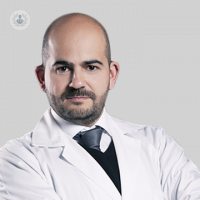Frequently Asked Questions about Drug Dependence
Written by:Often, family members wonder how to deal with a drug dependence case from a close family member. The doctor. Zafra, a specialist in psychiatry and addictions, offers the answers.
HOW SHOULD A FAMILY ACT INTO A CASE OF DRUG DEPENDENCE?
In order to understand and understand what an addiction consists of and how to deal with it, it is essential to include the family in the process of recovery of the patient, attending sessions with other families that are in a similar situation and include them in the Psychotherapy sessions, along with the patient with addiction problem.
The objective is that family members can understand what happens, debug the toxic emotions generated by the relationship with the addicted person and teach how to make an effective emotional support and give the necessary support to get the best prognosis and minimal risk relapse possible in consumption Of substances or alcoholism.
In the therapy establish some guidelines to follow. It is recommended to avoid codependency and controlling behaviors , so that it is understood that it is the person with addiction who has to take responsibility to put the maximum will and commitment to recover from this disease.
WHAT IS THE FIRST STEP TO FOLLOW?
The first step, on the part of the person with addiction problems, is to recognize the existence of the problem, to let help to overcome this disease and not to be afraid to ask for help.
When the first changes are made, motivation plays an important role, which is when the patient is more receptive to receiving information and proposing solutions. Motivation is a dynamic emotional state that forms a fundamental part of the therapeutic approach. Professionals must be trained in this type of therapy.
The objective of this type of approach is to keep the patient on the side of the balance that makes him decide to remain abstinent, as opposed to maintaining consumer behavior by professionals. This type of motivational approach is the one that shows a higher rate of abstinence maintained and psychologically places the patient in performing the things they play, how they play and when they play.

WHAT IS ADDICTION PATIENT RECOVERY TREATMENT?
It implies a dynamic process that has been classically defined in four phases, with no defined period of time, since it depends on the patient's personal characteristics and environmental conditions.
The first phase is the detoxification in which the patient is medically released from the alcohol or drug problem and the body and brain begin to function without drugs.
The second phase of the process is the dishabituation where the person identifies the toxic habits and attitudes altered, and make an active work to change them with the objective of improving the quality of life that favors their integration in the family, work and social environment.
From the moment of rehabilitation is the third phase of recovery and consists of recovering skills lost or not developed by the patient due to consumption, conducting activities aimed at controlling impulses, improve social skills or reduce anxiety.
The fourth phase is the reinsertion, which involves the preparation and return of the patient to his family and social environment with a standardized development of his life and a medical and therapeutic follow-up more distant in time, to achieve the goal fully.
HOW LONG DOES A REHABILITATION THERAPY LAST?
The detoxification phase which is the first. Generally, it has a time range between 10 and 25 days , depending on the severity of alcoholism or the intensity of the drug use disorder, the presence of dual pathology and the personal, medical, family and social consequences that have occurred during Active addiction. In other phases, time is not a limiting factor and must be adapted to the particular needs of each person and their environment.
In general, it is accepted that the first time step is located in the first 4-6 months , since it is when there can be a false perception of healing and lower the guard by the patient, when this step is exceeded, the next milestone Time of abstinence are 12 months. When the patient is able to take 2 years away from the addiction is when really the risk of relapse is minimized, although never becomes zero.
WHAT RECOMMENDATIONS SHOULD THE PATIENT FOLLOW AFTER THE TREATMENT IS FINISHED?
It is recommended to initiate follow-up sessions through outpatient sessions , either individual or group, according to which the patient and his / her family continue with a medical and psychological follow-up to see how the patient is incorporated into their life and if the established objectives are met. This means strengthening the improvement, strengthening new habits and tackling adversities jointly, anticipating real and effective eventualities that may arise.


